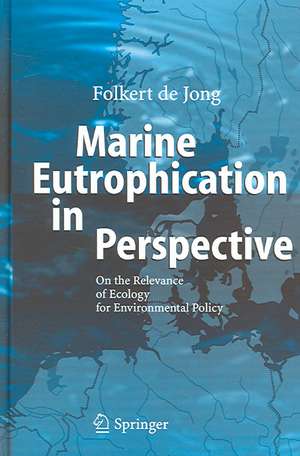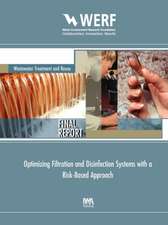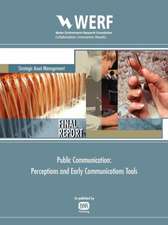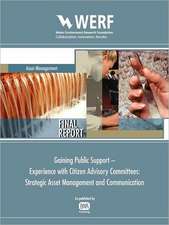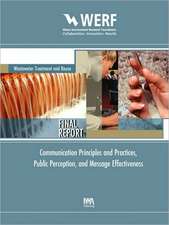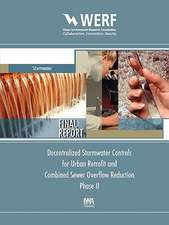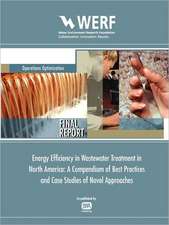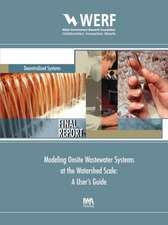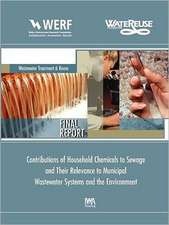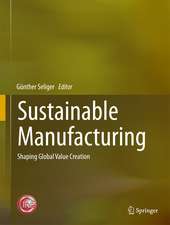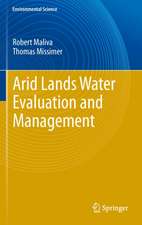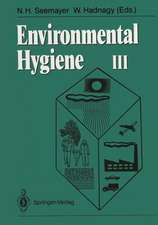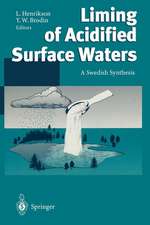Marine Eutrophication in Perspective: On the Relevance of Ecology for Environmental Policy
Autor Folkert de Jongen Limba Engleză Hardback – 22 mai 2006
Triggered by a series of oxygen depletion events in German, Danish and Swedish coastal waters at the beginning of the 1980s, international policies to reduce inputs of nitrogen and phosphorus to the North Sea were agreed upon by the North Sea states.
The book provides a critical analysis of the role, scientists and scientific information, as well as civil servants, have played in the formulation and implementation of these decisions.
| Toate formatele și edițiile | Preț | Express |
|---|---|---|
| Paperback (1) | 946.87 lei 6-8 săpt. | |
| Springer Berlin, Heidelberg – 14 oct 2010 | 946.87 lei 6-8 săpt. | |
| Hardback (1) | 953.03 lei 6-8 săpt. | |
| Springer Berlin, Heidelberg – 22 mai 2006 | 953.03 lei 6-8 săpt. |
Preț: 953.03 lei
Preț vechi: 1162.23 lei
-18% Nou
Puncte Express: 1430
Preț estimativ în valută:
182.36€ • 190.79$ • 151.49£
182.36€ • 190.79$ • 151.49£
Carte tipărită la comandă
Livrare economică 02-16 aprilie
Preluare comenzi: 021 569.72.76
Specificații
ISBN-13: 9783540336471
ISBN-10: 3540336478
Pagini: 347
Ilustrații: XII, 335 p.
Dimensiuni: 155 x 235 x 24 mm
Greutate: 0.66 kg
Ediția:2006
Editura: Springer Berlin, Heidelberg
Colecția Springer
Locul publicării:Berlin, Heidelberg, Germany
ISBN-10: 3540336478
Pagini: 347
Ilustrații: XII, 335 p.
Dimensiuni: 155 x 235 x 24 mm
Greutate: 0.66 kg
Ediția:2006
Editura: Springer Berlin, Heidelberg
Colecția Springer
Locul publicării:Berlin, Heidelberg, Germany
Public țintă
ResearchCuprins
1 Introduction: Ecology for policy.- 1.1 Science for policy.- 2 The art of discharging.- 2.1 The sewage problem.- 2.2 Water pollution research.- 2.3 The contribution of ecology.- 2.4 Emerging limits.- 2.5 Marine pollution and IGOs.- 2.6 Pollution control.- 2.7 Summary and conclusions.- 3. The discovery of marine eutrophication.- 3.1 Freshwater eutrophication.- 3.2 Marine eutrophication.- 3.3 The relative importance of marine eutrophication.- 3.4 Marine eutrophication and official bodies.- 3.5 Summary and conclusions.- 4 The politics of marine eutrophication.- 4.1 1981-1985: The assembly of a problem.- 4.2 1986-1987: Political decision-making.- 4.3 Recapitulation: marine eutrophication constructed.- 4.4 1988-1990: towards the third North Sea Conference.- 4.5 Summary and conclusions.- 5 The management of marine eutrophication.- 5.1 New knowledge.- 5.2 New knowledge and the science-policy interface.- 5.3 Political developments.- 5.4 Summary and conclusions.- 6 Summary, discussion and conclusions.- References.- Annex 1.- Annex 2.- Annex 3.- Index.
Recenzii
From the reviews of the first edition:
"This book focuses on the relevance of ecology for environmental policy by taking up the theme of marine eutrophication as an illustrative case. … The book presents an interesting account of developments in science and policy making in NW Europe and of their interacting processes. Therefore, the book makes a useful reading for both politicians and water quality managers, as it gives insight into the processes involved in interactions of science, policy making and politics." (Karel Essink, Aquatic Ecology, Vol. 40, 2006)
"This book focuses on the relevance of ecology for environmental policy by taking up the theme of marine eutrophication as an illustrative case. … The book presents an interesting account of developments in science and policy making in NW Europe and of their interacting processes. Therefore, the book makes a useful reading for both politicians and water quality managers, as it gives insight into the processes involved in interactions of science, policy making and politics." (Karel Essink, Aquatic Ecology, Vol. 40, 2006)
Notă biografică
Folkert de Jong (1951) studied biology in Groningen (NL). He has more than 20 years experience with international environmental policy-making in the North Sea area. Since 1990 he has been deputy secretary of the International Wadden Sea Secretariat in Wilhelmshaven (Germany). In this position he was responsible for the coordination of quality assessments of the international Wadden Sea ecosystem and closely involved in the elaboration of North Sea quality status reports.
He now co-ordinates the activities of the trilateral Wadden Sea Forum, a platform of stakeholders from the Wadden Sea region, working on sustainable development perspectives and integrated coastal zone management.
He now co-ordinates the activities of the trilateral Wadden Sea Forum, a platform of stakeholders from the Wadden Sea region, working on sustainable development perspectives and integrated coastal zone management.
Textul de pe ultima copertă
Is ecological knowledge relevant for environmental policy and if so, to what extent and in what way? These are some of the basic questions addressed in this book.
Triggered by a series of oxygen depletion events in German, Danish and Swedish coastal waters at the beginning of the 1980s, international policies to reduce inputs of nitrogen and phosphorus to the North Sea were agreed upon by the North Sea states.
The book provides a critical analysis of the role, scientists and scientific information, as well as civil servants, have played in the formulation and implementation of these decisions.
Triggered by a series of oxygen depletion events in German, Danish and Swedish coastal waters at the beginning of the 1980s, international policies to reduce inputs of nitrogen and phosphorus to the North Sea were agreed upon by the North Sea states.
The book provides a critical analysis of the role, scientists and scientific information, as well as civil servants, have played in the formulation and implementation of these decisions.
Caracteristici
Invaluable for scientists and policy makers alike when dealing with waste issues in the North Sea Includes supplementary material: sn.pub/extras
